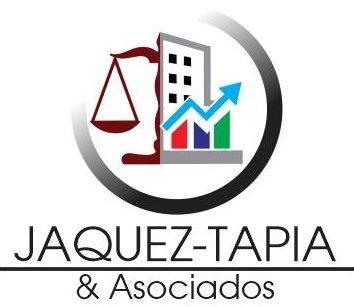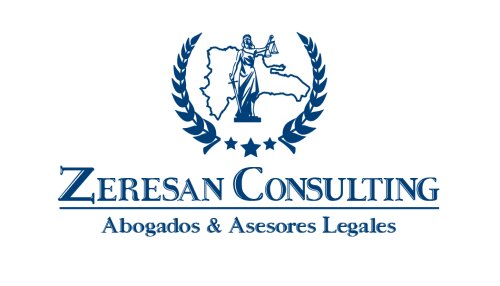Best Criminal Litigation Lawyers in Santo Domingo Este
Share your needs with us, get contacted by law firms.
Free. Takes 2 min.
List of the best lawyers in Santo Domingo Este, Dominican Republic
About Criminal Litigation Law in Santo Domingo Este, Dominican Republic
Criminal litigation in Santo Domingo Este, like the rest of the Dominican Republic, involves the legal process where the government prosecutes individuals or entities charged with criminal conduct. The legal system in the Dominican Republic is based on civil law traditions, influenced by European legal doctrines, primarily those of Spain and France. Criminal cases typically proceed through a series of investigative stages, followed by prosecution, trial, and potential appeals. Given the complexity and severity of criminal proceedings, having knowledgeable legal representation is crucial for navigating the legal system.
Why You May Need a Lawyer
Legal representation becomes essential in several criminal litigation scenarios. If you are accused of a crime, a lawyer can provide defense strategies, protect your rights, and negotiate with prosecutors. Legal counsel is also vital if you are a victim seeking justice or reparation, as the process can be challenging without expert guidance. Additionally, lawyers are helpful for those needing to understand changes in local laws, those wrongly accused, and individuals looking to expunge or seal criminal records.
Local Laws Overview
The criminal law framework in Santo Domingo Este is governed by the Dominican Penal Code, which outlines offenses ranging from minor infractions to serious felonies. Key aspects include the presumption of innocence until proven guilty, rights to a fair trial, and the availability of appeal processes. The legal system emphasizes both punitive and rehabilitative aspects, seeking to balance punishment with opportunities for reform. An understanding of these laws and processes is central to effectively managing criminal litigation matters.
Frequently Asked Questions
What should I do if I am arrested?
Remain calm, exercise your right to remain silent, and request to speak with a lawyer immediately. Do not volunteer any information without legal counsel.
How can a lawyer help in my criminal case?
A lawyer can evaluate your case, develop a defense strategy, challenge evidence, negotiate plea deals, and represent you in court.
What are the possible outcomes of my criminal case?
Outcomes can include dismissal of charges, acquittal, plea bargain agreements, conviction, or appeals. Each case depends on its specific facts and legal representation.
How long does the criminal litigation process take?
The duration varies based on case complexity, court schedules, and whether it proceeds to trial. It can range from a few months to several years.
Can I appeal a conviction?
Yes, defendants have the right to appeal convictions. Appeals must be filed within a stipulated period following the verdict and are subject to appellate court review.
What if I can't afford a lawyer?
The state provides legal aid to those who cannot afford private counsel. Public defense attorneys are available to ensure fair representation.
What are my rights during interrogation?
You have the right to remain silent, the right to legal representation, and must be informed of the charges against you. Any coercion or intimidation during interrogation is unlawful.
Can a criminal record be expunged?
Under certain conditions and depending on the offense, records can be sealed or expunged. Legal advice is crucial for pursuing record expungements.
What happens if I miss a court date?
Missing a court date without valid reason can lead to a bench warrant for your arrest. It's important to communicate promptly with the court or your attorney.
How can a victim of crime seek legal recourse?
Victims may file complaints with police, seek protective orders, and pursue charges through the public prosecutor with legal support to guide the process.
Additional Resources
Consider reaching out to the following entities for additional support and information:
- Ministry of Justice - Provides legal guidance and resources.
- Public Defender’s Office - Offers legal representation for those unable to afford private counsel.
- Bar Association of the Dominican Republic - Can recommend qualified criminal defense attorneys.
- Local NGOs - Some organizations offer victim support and legal assistance.
Next Steps
When facing legal challenges in criminal litigation, start by consulting with a skilled attorney to discuss your case in detail. Gather all relevant documentation and evidence related to your situation. If financially constrained, seek information on public defender services. Staying informed about your rights and the legal process is critical, so utilize available legal resources and maintain open communication with your legal advisor.
Lawzana helps you find the best lawyers and law firms in Santo Domingo Este through a curated and pre-screened list of qualified legal professionals. Our platform offers rankings and detailed profiles of attorneys and law firms, allowing you to compare based on practice areas, including Criminal Litigation, experience, and client feedback.
Each profile includes a description of the firm's areas of practice, client reviews, team members and partners, year of establishment, spoken languages, office locations, contact information, social media presence, and any published articles or resources. Most firms on our platform speak English and are experienced in both local and international legal matters.
Get a quote from top-rated law firms in Santo Domingo Este, Dominican Republic — quickly, securely, and without unnecessary hassle.
Disclaimer:
The information provided on this page is for general informational purposes only and does not constitute legal advice. While we strive to ensure the accuracy and relevance of the content, legal information may change over time, and interpretations of the law can vary. You should always consult with a qualified legal professional for advice specific to your situation.
We disclaim all liability for actions taken or not taken based on the content of this page. If you believe any information is incorrect or outdated, please contact us, and we will review and update it where appropriate.










